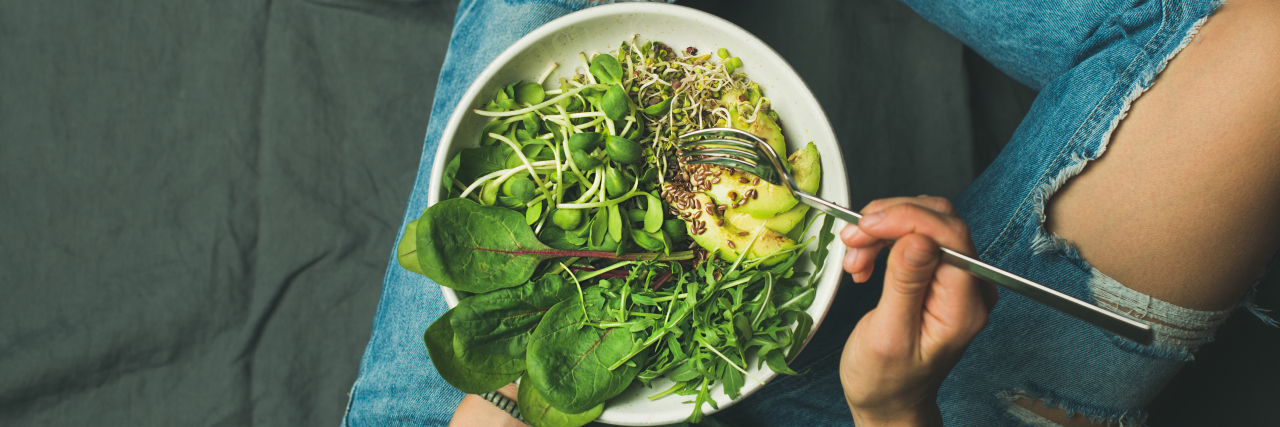18 months ago, I made the decision to adopt a vegan lifestyle. Not just a diet, but a lifestyle. I would no longer consume animal products in any way, which meant not just food, but indirectly through the purchase of clothing and household goods too. Now, at the time, I gave three reasons for this decision: ethics, environment and health. Two of these reasons are true: I have an overwhelming passion about the complicated ethics of consuming animals and animal products, and the impact this consumption has on the environment. The last reason however? Not as true. In fact, this was just a façade for what became a new eating disorder behavior. This was never going to be a “healthy” venture.
Since the age of 11, I secretly and silently struggled with anorexia nervosa. So secretly that it was only diagnosed quite recently, and after the fact. It was quite severe to say the least, and I was very unwell, eating only dinners and tiny breakfasts with my family to maintain a sense of normalcy, calories that I carefully counted to exercise away later. I lied, extremely well, and very often about what I ate, when I ate, the amount I ate, the amount I weighed, how often I weighed myself, how often I exercised, how much I exercised, the point of exhaustion I reached when I finally stopped exercising — there were a lot of lies. At age 17, my weight restored, I turned to veganism. I thought I was ready for it. But this was yet another lie.
I turned to veganism so that I could stop eating meat and dairy. This need far outweighed the other reasons I gave. The overwhelming fears I was experiencing after weight restoration – a solo feat, due to the secrecy – and all the uncomfortable sensations that it entailed, was what sent me down what would become yet another self-destructive path. Looking back, it was not so dissimilar to my initial orthorexic behaviors that initiated my spiral into anorexia, namely, eliminating fats and carbohydrates. Veganism satisfied the same restrictive desires.
Veganism also triggered the development of bulimia nervosa when I moved away from home for university, and this is still something I am struggling with — every damn day.
Which is why, as I embark on a new stage of recovery, eating dairy is a major sign of progress. No, I still don’t eat meat, and yes, this truly is because of ethical and environmental reasons. These reasons also explain why I choose to avoid consuming animal products indirectly by purchasing clothes and household goods either derived from, or tested on, animals. What I do eat however, are “ethical” eggs, occasionally seafood and cheese. I no longer excuse myself from eating certain processed foods because of tiny amounts of dairy, when really, my disorder was berating me every time I had a taste. It’s a new kind of veganism.
One day, I would like to return to the vegan diet I so wrongly adopted. But I will do it when my body is ready, and nourished, and can support that journey, and when I no longer rely on eating disorder behaviors to deal with other problems in my life. By that I mean, hopefully when I have fully recovered from almost nine years of eating disorder struggles. Until then, as I slowly unravel the tangle of lies I have weaved around myself, I will be leaving veganism behind me.
If you or someone you know is struggling with an eating disorder, you can call the National Eating Disorders Association Helpline at 1-800-931-2237.
We want to hear your story. Become a Mighty contributor here.
Getty image via Foxys_forest_manufacture

